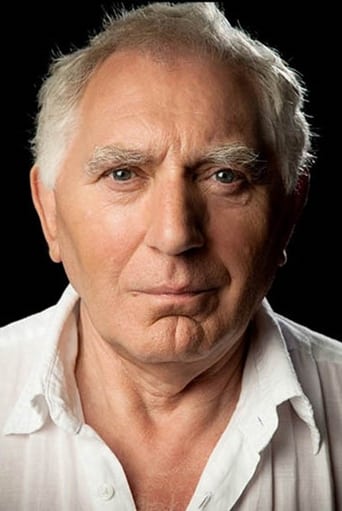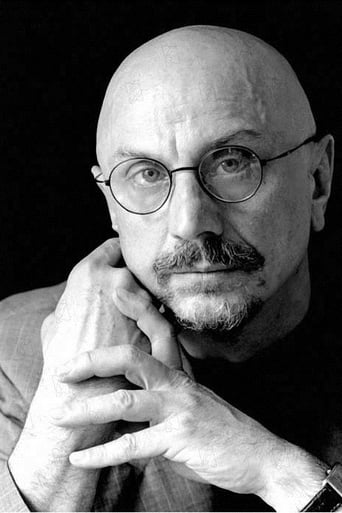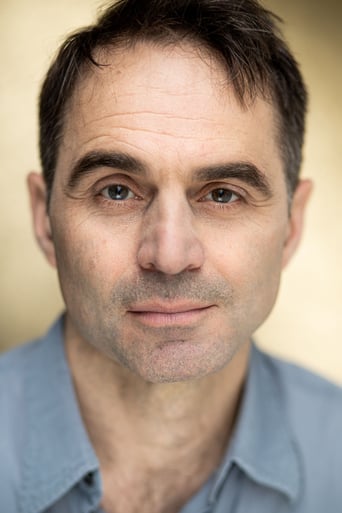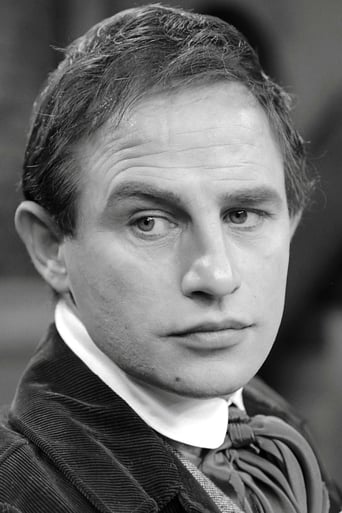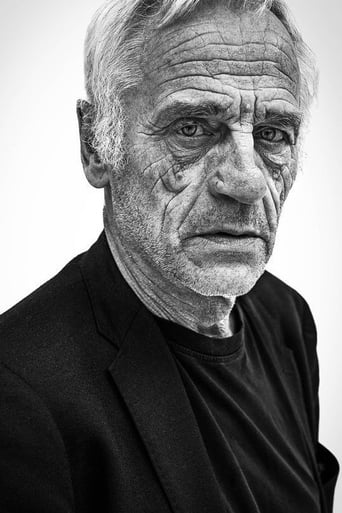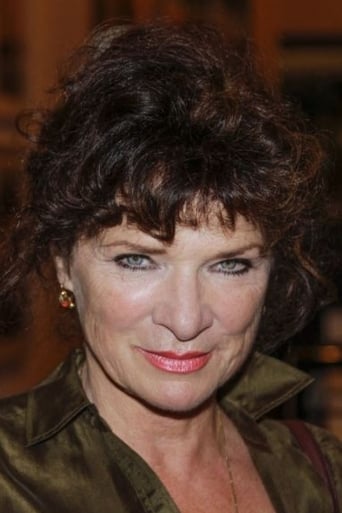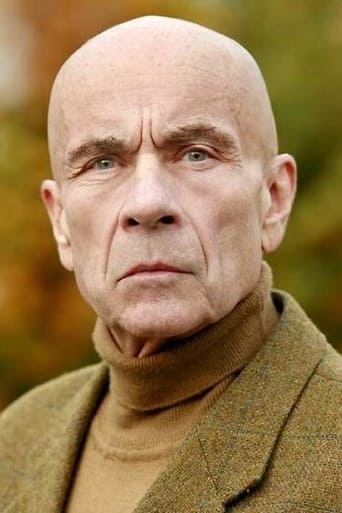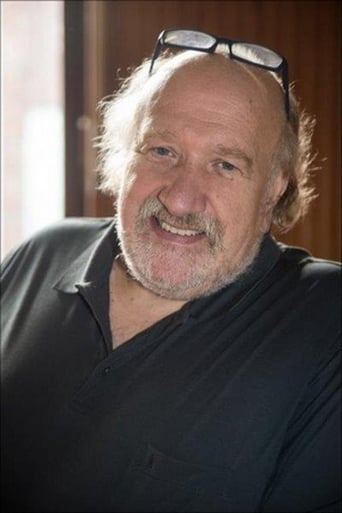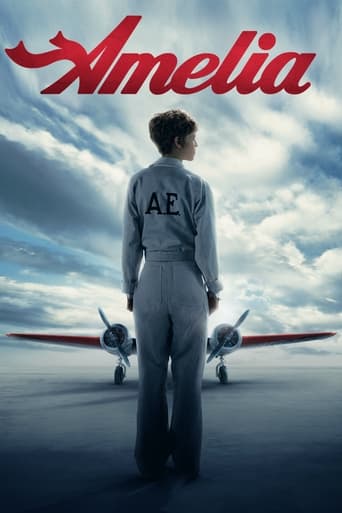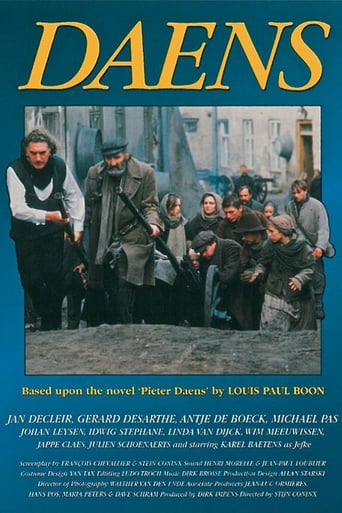
In the 1890s, Father Adolf Daens goes to Aalst, a textile town where child labor is rife, pay and working conditions are horrible, the poor have no vote, and the Catholic church backs the petite bourgeoisie in oppressing workers. He writes a few columns for the Catholic paper, and soon workers are listening and the powerful are in an uproar. He's expelled from the Catholic party, so he starts the Christian Democrats and is elected to Parliament. After Rome disciplines him, he must choose between two callings, as priest and as champion of workers. In subplots, a courageous young woman falls in love with a socialist and survives a shop foreman's rape; children die; prelates play billiards.
Similar titles
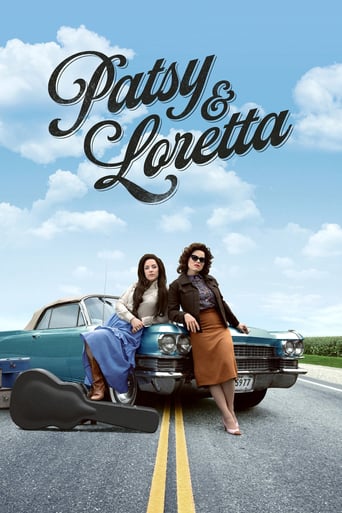
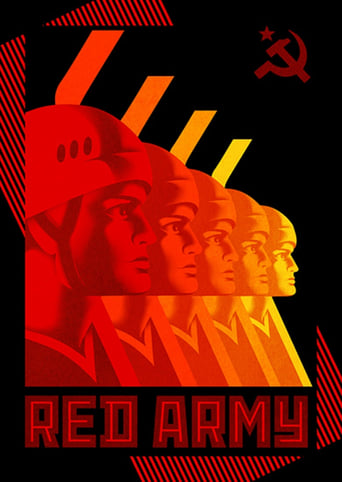
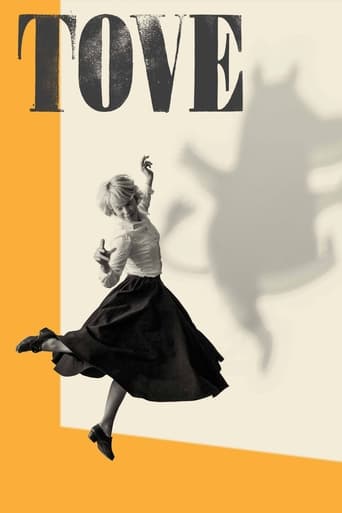


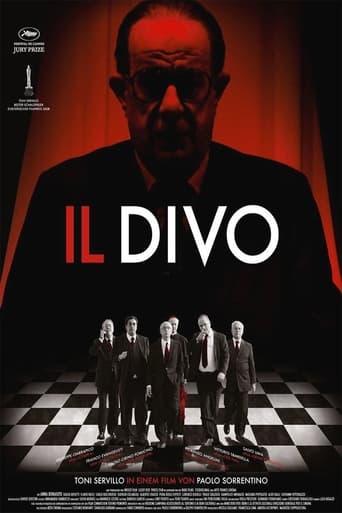
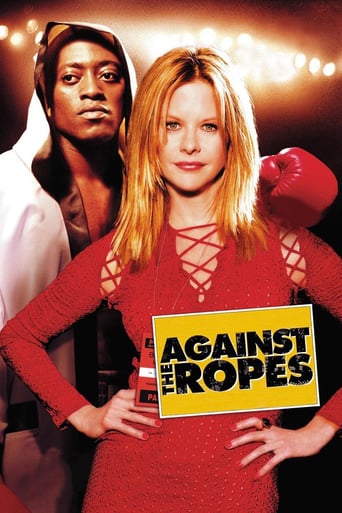
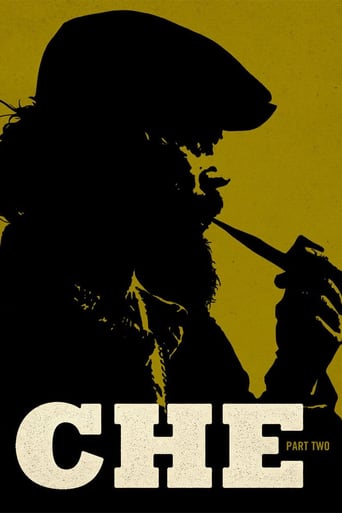
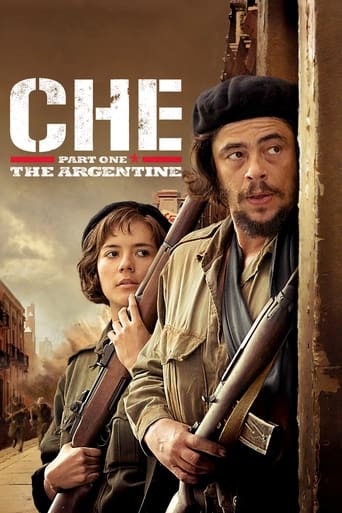
Reviews
Self-important, over-dramatic, uninspired.
This is one of the few movies I've ever seen where the whole audience broke into spontaneous, loud applause a third of the way in.
I enjoyed watching this film and would recommend other to give it a try , (as I am) but this movie, although enjoyable to watch due to the better than average acting fails to add anything new to its storyline that is all too familiar to these types of movies.
If you're interested in the topic at hand, you should just watch it and judge yourself because the reviews have gone very biased by people that didn't even watch it and just hate (or love) the creator. I liked it, it was well written, narrated, and directed and it was about a topic that interests me.
Socialism and the social-democracy originate from Europe, where the industrial revolution began. It became the ideology of the workers, who were cruelly exploited and suppressed by the capitalists. The social problem created political controversies. It all started with the textile production, which was concentrated in England and Belgium. In the beginning the new capitalist system was pretty disgusting. Often the situation of the industrial workers worsened in comparison with the preceding feudalism. The film Daens narrates this not very nice episode of our history for the Belgian case. At the time Belgium was still under the influence of the catholic church. The Pope had proclaimed the encyclical letter Rerum Novarum, which stressed the rights of the workers. However, the capitalists were not impressed. And since eventually the church follows the money (for someone has to pay the bills), there was little real improvement for the workers. Daens is a priest, who sides with them. The capitalists don't like this, and exert pressure on the church. Spoiler! Daens is expelled from priesthood, and continues as a politician. Fortunately decency still exists. The film is based on a book by Louis Paul Boon (Opus magnum: De kapellekensbaan). Boon has a surrealistic and dejected style of writing, which focuses on the human shortcomings. This is noticeable in the film plot, so prepare yourself for some degenerate behavior, rapes, children freezing to death or being crushed by weaving-looms etcetera. However Boon never creates a sensation, and mentions these disasters more or less in passing (which makes it so surrealistic). In fact the heroic Daens is a bit atypical, and may be a deviation from Boons book (which I have not read). If you believe that the history of capitalism is a success story, than this film will surprise you. If you like persiflages, this film will please you. If you are interested in history, this film will educate you. What more can I say? By the way, you will find many similar films in my list of reviews. Take for instance "Subterra", or more timely "Norma Rae". There may well be many recent South-American films about the same theme. If so, tell me. Oh, and don't forget to check off the "useful: yes" ballot. I love comments.
This is the best Belgian film I've ever seen. And since I am Belgian, I've seen a lot of them. Antje De Boeck is such a wonderful actress and Jan Declair is absolutely our best actor. You could recently see him in "De zaak Alzheimer" as Ledda. The story is as realistic as possible, but luckily there is that little romance to bring happiness in the rather depressing story. To understand the full beauty of the movie you should have to understand Dutch, or even both French and Dutch (as most Flemish people do (=inhabitants of the northern half of Belgium)), because even the accents have been adapted to the right time span. Just a note to the Flemish: (Ik zal het in het Engels moeten doen, want deze site accepteert niet veel in het Nederlands) If you haven't seen this movie yet, you should do it right away! You can learn more from it than from all history classes at school! Because in my opinion, history is still about people, not about facts.
This is considered as undoubtedly the most important Belgian film ever made, a cinematic event in its home country when it came out. People flocked to see it, awards were bestowed on it, students wrote term papers about it, everybody talked about it, every school showed it to its students (and they still do, more than ten years later), and its director, Stijn Coninx, even got made a baron on the strength of it. Even so, Coninx was never really able to live down the reputation of "director of Daens". In a country with basically no film tradition to speak of, a movie like Daens is a once-in-a-lifetime achievement, if only because they'll never allow you to spend that much money again, even if it did earn it back. One cannot help but feel that had he made the equivalent of this one in America, he'd be one the biggest directors around today.The story is about a courageous, socially feeling priest who went against church authorities and the political powers that be (heavily interlinked at the end of the 19th century) to help the impoverished workers of Aalst, Belgium. Although romanticised somewhat, and even with the addition of certain characters to strengthen the dramatic arc of the movie, this is based on a true story. Coninx did absolutely amazing things with a limited budget to bring the era back to life, and his camera lingers tellingly in the dirty, narrow little streets where the workers were packed together, entire families with hordes of children living in one room. We also get to see the factories, dangerous places, where people spend twelve or more hours a day for scraps off the tables of the wealthy factory owners. All of this is brought to life in a completely convincing way, immersing you in the period.Coninx' control as a director here is remarkable. Without any real money (certainly by US standards), he manages to pull off a story of epic scope that looks and feels exactly as it should. Consider a scene set in the palace of the king, where an opulent dinner is going on, served by black people brought over from what was then Belgian Congo. "Are they dangerous?," one of the women asks. Lesser directors might have hammered the point home by going on about it, but Coninx doesn't. He lets this one simple line stand, lets it speak for itself and moves on. This way, he's able to pack in a surprising amount of stuff in the 135 minutes running time, and it doesn't feel rushed or hurried, but on the other hand, very natural. Visually too, this scene is as striking as any, showcasing the luxury of the wealthy as opposed to the squalor of the poor. And again Coninx doesn't make a point of it, he doesn't give in to the temptation of making self-conscious cuts or moving the camera that way. He just lets it be, keeps things simple.Jan Decleir gives a powerful performance as Adolf Daens, who comes off as a brilliant orator, an almost saintly figure who heeds no warnings and goes on in the face of public humiliation, ex-communication and even physical violence. This is probably a simplification of the truth (it's hard to believe anyone is THAT perfect), but the power Decleir brings to the role makes it work.There are some minor problems, however. The screenwriters and directors seem to have a somewhat naive belief in the socialist party of the time, as a well-meaning boys' club that basically says the same things Daens says throughout the movie. And there are some scenes that feel phony, such as an unbelievably corny moment in a field, when one the characters rides along on a bike, yelling extacically that Daens has just been elected to parliament. Cut to a shot of an old man falling to his knees with pure joy, as the triumphant music swells. Sorry, but that's just a bit too much.All in all this is a movie deserving of its status as classic in Belgium, and very much worth seeing where ever you're from. Back here, we've been beaten over the head with this movie so many times that a lot of people must almost know it by heart, but then that's not the movies fault.
DAENS Aspect ratio: 1.85:1Sound format: Dolby Stereo SRStijn Coninx's exemplary period drama mixes gritty realism (the harshness of life amongst the poor in 19th century Flanders) with romantic heroism (the struggle of the title character - a priest - to free the oppressed workers from the tyrannical control of their middle-class rulers). Coninx takes a distinctly cinematic view of the proceedings and never allows the film's depressing subject matter to overwhelm the viewer, preferring instead to milk the dramatic potential from a fascinating script, which is based on fact. Every scene is a miniature gem, sometimes small and intimate, sometimes grand and sweeping, and Coninx invites the viewer to share in Daens' sense of outrage and injustice. He's helped in no small measure by a superlative cast, headed by Jan Decleir as the passionate, free-thinking Daens, Antje de Boeck as a gutsy factory worker who rails against the horrendous working conditions around her, and Gerard Desarthe as the villain of the piece, determined to maintain the status quo and discredit Daens in the process. Michael Pas also makes an impression as a dedicated Communist who rallies to the priest's cause and falls in love with de Boeck along the way. Excellent production values. (Dutch and French dialogue)
Top Streaming Movies













